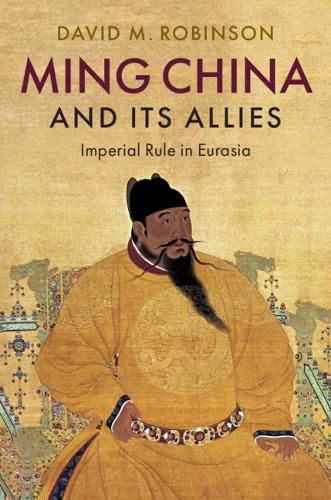Readings Newsletter
Become a Readings Member to make your shopping experience even easier.
Sign in or sign up for free!
You’re not far away from qualifying for FREE standard shipping within Australia
You’ve qualified for FREE standard shipping within Australia
The cart is loading…






On the eve of the early modern age, Ming emperors ruled around one-quarter of the globe’s population, the majority of the world’s largest urban centers, the biggest standing army on the planet, and the day’s most affluent economy. Far from being isolated, the Ming court was the greatest center of political patronage in East Eurasia, likely the world. Although the Ming throne might trumpet its superiority, it understood its need for allegiance from ruling elites in neighbouring regions. In this major new study, David M. Robinson explores Ming emperors’ relations with the single most important category of Eurasian nobles: descendants of Ghengis Khan and their Mongol supporters. Exploring the international dimensions of Chinese rule, this revisionist but accessible account shows that even rulers such as the Ming emperor needed allies and were willing to pay for them.
$9.00 standard shipping within Australia
FREE standard shipping within Australia for orders over $100.00
Express & International shipping calculated at checkout
On the eve of the early modern age, Ming emperors ruled around one-quarter of the globe’s population, the majority of the world’s largest urban centers, the biggest standing army on the planet, and the day’s most affluent economy. Far from being isolated, the Ming court was the greatest center of political patronage in East Eurasia, likely the world. Although the Ming throne might trumpet its superiority, it understood its need for allegiance from ruling elites in neighbouring regions. In this major new study, David M. Robinson explores Ming emperors’ relations with the single most important category of Eurasian nobles: descendants of Ghengis Khan and their Mongol supporters. Exploring the international dimensions of Chinese rule, this revisionist but accessible account shows that even rulers such as the Ming emperor needed allies and were willing to pay for them.